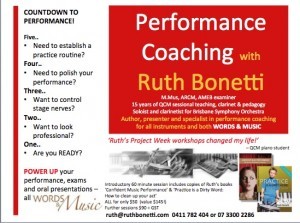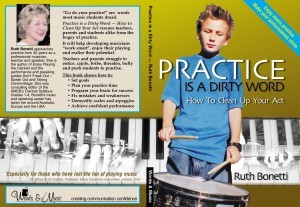Ruth Bonetti's Blog, page 4
March 28, 2016
Find your voice to speak/write
Voices reveal all. Writers wrestle to ‘find their voice’ and that of characters.
Public pressure may cause speakers to lose resonance, even voice.
Tension causes tight timbre. (Tip: Hum into your head, so you feel vibration in your crown. Hum while opening your nostrils and nasal passages; and while accessing the front “mask” area of your face. Keep your throat open and posture upright.)
Insecurity causes ‘up talk’ or that recent trend, ‘vocal fry‘.
Tip: Before presenting, find your natural range with a conversational ‘aha’)
Edit, edit and more edit!
Whether you write for the ear or the eye, prune excess words and redraft.
But my coming book cries ‘no more culls!’ But how to choose between fascinating stories? Rather than publish a brick doorstop tome, I opted for two books:
Burn My Letters

Midnight Sun to Southern Cross
Curb – or censor?
My characters expressed their voices in archival letters and recorded interviews.
These and my research unearthed answers to why refugee Karl Johan Back wrote in 1899 to ‘Burn My Letters!’ Under Russian occupied Finland his words were censored. Letters that were saved from the fire uncover insights into his story–and his unique voice.
Will you help me crowd fund the final leg of a decade long journey?
This week I launch a crowdfunding campaign to publish my next two books. I’ll post a link when it goes live. I offer rewards in return for pledges from $7 up. Books, of course. Scandinavian goodies like home-baked Finnish gingerbread.
I’m excited! It’s countdown to campaign lift off. I hope you will come aboard.
More on my Facebook page.
Enjoy the journey as I have done with its discovery.
April opportunity – coaching and presentation NZ, Adelaide
As I fly there for other bookings, I can offer presentations and coaching without usual travel costs. Email for available dates.
February 26, 2016
Ms. Crotchet calls time on tutti
Kudos to colleagues who teach mixed groups of instruments, standards and ages as their norm. I know some who battle groups of 30 Bb/Eb clarinet and sax beginners. They’re braver than me!
So I’m blessed…
That last week, in a group of three, some Year 4 clarinet beginners managed a few opening notes of Pink Panther in their third lesson. I was as surprised as they were. With help from parents who play a little clarinet, they managed the first phrase next lesson. Are they practising? Heaps!
But I am OVER mismatched groups!
I sent an email to parents last year:
“Dear parents,
To best realise your child’s potential and optimise your investment, consider:
GROUP LESSONS – Pro and Con:
Group suits family budgets.
They nibble a teensy taste of music.
It’s sociable – if players are well matched and compatible.
BUT age, instruments and standards often vary.
Little scope for timetable changes, or adjustment.
2 students in 30’ group = 15’ each.
3 students in 30’ group = 10’ each. Pieces chosen for the group pace.
Time goes on aspects where Matt struggles but Jake plays easily.
Fingers twiddle while Mr. Quaver fixes a student’s bent key.
If a student misses a lesson that others attend, there’s no scope for make-up.
Exams aren’t feasible for groups with little time to cover all aspects. Ms. Crotchet talks staccato sfz, marcato, V between brows.
Presto to hear what students practised and give new pieces.
If no time to play all they prepared, why practice next week? They lose interest.
Practice dwindles > performance nerves
They need Ruth’s books (check the half-price deals and class sets).
Capable students stop lessons if frustrated, wasting talent and parents’ investment.
PRIVATE LESSONS
Negotiate timetable for premium times in break/before class.
Make-up lessons if 24 hours’ notice of illness or tests.
With teacher’s undivided attention, students move at their own, faster pace.
Ms. Dolce chooses pieces and styles they like, is enthusiastic, relaxed and fun.
Exams and competitions are well prepared, so high results are likely.
Students set and meet goals, enjoy challenges, realise potential and SHINE IN PERFORMANCE!”
Andante con momentum
It was a risk. But this year, Mrs Dolce’s schedule is full, her days long, but she emerges grazioso!
February 17, 2016
Dare to speak–or write–your truth
We are blessed to live in a free country. Cherish that. Challenge it.
Advocacy or Activism?
Disturbed by government funding cuts in my particular fields of words and music, I eyeballed a politician and spoke my mind. He took it with grace, as he touted his party line. I supposed that was the end of it.
> Opportunity
A year later he welcomed me onto a policy sub-committee where I could voice such reservations, written and spoken. They were noted and a slant found its way into draft working paper representations. Even the gratifying word “listen.”
Will it make a difference? Who knows. My words may be edited out in the process.
Rather than whine on the fringe, I’m satisfied that my concerns are heard.
What if people misunderstand?
Or misinterpret?
Letters to newspapers are edited, sometimes giving an emphasis not intended. If I list several names as an example of a group, the editor may choose the one most noteworthy and ignore others that would temper my argument. This may project a more extreme position than the balance I intended.
“I’m amazed to hear you support X!” people exclaim.
Actually, no. The other three names gave a broad perspective.
I cannot recall or fiddle these words above my name.
Avoid a backfire?
I could play safe. But I choose to exercise my freedom for the good I intend. Let’s hope my audience gets it.
January 5, 2016
Of voice, gifts and refugees
Let your light shine
An earlier post bewailed ever-tighter restrictions on “free speech” yet even I bowed to political correctness pressure. Some Christmas greetings wimped out with a vague “Whoever and however you celebrate” rather than wish happy Christmas.
“Aha!” I thought, I dodged my own issue and missed the boat of the true meaning. That the Christmas story goes on to tell of a Palestinian refugee family who fled from a despot dictator.
Soon after, The Australian newspaper reported that singing Christmas carols is now banned in Victorian public schools! Bah, humbug, to quote Ebenezer Scrooge, for singing and praise uplift the spirits!
“Aha!” at the carol service
Ever thought a casserole might be more practical for a poor, young family, not the Magi gold, frankincense and myrrh? Yet these gifts were God’s provision to afford their refugee flight to Egypt.The father, Joseph was warned by a dream that the despotic King Herod was so threatened by a baby Messiah, that he would massacre all young boys. Refugee Jesus Christ lived–to put the real meaning into Christ’s Mass. Then suffer and overcome a miscarriage of justice.
What propelled refugees’ flight?
Many struggle to comprehend, welcome and assimilate the mass of refugees who fled Syria and other regimes into Europe. What ordeals propelled them? A book has illumined this tough issue: the gripping yet lyrical I Confess – Revelations in Exile by Iranian doctor Kooshyar Karimi (Wild Dingo Press). Read my review of this eye and heart opener.
(And while on goodreads.com and Amazon do comment on any of my own books you’ve read. Or order them here.)
Another refugee story
My next book tells of another flight from oppression – a refugee from Russian occupied Finland, where a rigid regime’s Board of Censors suppressed newspapers and free association. Self-described “pen-fighter” Karl Johan Back, my great-uncle, fled in 1899 to asylum in Australia. Three years later his brother, my grandfather, followed to settle. He become the Migrant-Made-Good, developing much of the northern NSW, St Lucia in Brisbane, and western Queensland pastoral land.
Burn My Letters; Midnight Sun to Southern Cross is closer to publication, as I explore options. Email for info about release date and launch, to join my crowd funding caravan.
Writing Life Stories
See tips in my blog on this tricky process.
This year, may you shine in all your endeavours.
“Rise and shine!” my mother chirruped to wake her eight children.
It is better to light a candle than to curse the darkness. (Proverb)
Be that light.
December 6, 2015
Safe speaking
What price ‘free speech?’
Written and spoken words are my metier, so I’m disturbed by this year’s terrorist attacks. Not just in Paris; I urge you to sign or write petitions to free journalists imprisoned or murdered for doing their job.
‘All that is needed for evil to flourish is for good men [people] to do [say] nothing.‘
(Attributed to Edmund Burke.)
Are private words safe?
A quick riposte on FaceBook or Twitter is out there, can be read from apposite perspectives. More disturbing is when private email has been hacked and circulated.
Most thinking persons don’t mean to offend others with their words, sounds, images or writing (my tools of trade!). But the devil is in the interpretation of “reasonably likely, in all the circumstances, to offend, insult, humiliate or intimidate another person or a group of people”.
Let’s lighten up
People warm to humour, if well handled. See tips to avoid pitfalls and inject safe humour in my book Speak Out-Don’t Freak Out.
(A quick 90-minute read to pep you before a presentation; it’s available on Amazon.)
Do we need to be funny?
Where relevant, humour can be a big audience winner. Jokes are safest if turned on oneself, perhaps relating a mishap or embarrassing situation. People respond to your openness. Don’t embarrass other people.
Beware especially of racism, profanity, or stamping on religious and political corns. Test those hilarious jokes on the family over breakfast to discover just how effective they are. If you do upset anyone, have the courage and grace to apologise.
Is ‘off the cuff’ off the planet?
You know those network situations where all have a minute to pop up and spruik their business? Usually I speak off the cuff, it feels natural. This week, I crafted and read my words. As the presenter, about to give constructive feedback around the table, I had to set a positive example. It felt stilted. I did a verbatim retake to show the difference.
But be yourself
If you feel safer with a written text, so be it. Vary content according to audience/situation. Pause to breathe. Look up to include your listeners.
Ruth’s 2016 Diary is open
Email to check available dates for presentations, training and coaching there and elsewhere.
Or writing
You’re articulate… but too busy to condense a lifetime’s expertise into a pithy, witty and life-changing presentation.
Or deadlines loom for media releases, blogs and papers.
Whether you write for the ear or the eye, I can craft your scribbled bullet points into engaging text; edit out words that invite stutters into those that flow off the tongue. And polish your content so it shines!
Dare I say it?
Yes. I wish you God’s blessings, joy and peace for a happy Christmas season. However and whoever you celebrate.
November 25, 2015
Adrenaline: performance highs and lows
ALERT: Beware adrenal fatigue.
PRIORITISE as time runs short. I could have posted this blog sooner, but chose to schedule a massage and a nap before the afternoon’s teaching and practice sessions.
My students played their concert last week. That morning, I wasn’t surprised when some asked to change their pieces to Plan E (for EASY) instead of the mooted Plan C (for CHALLENGE) or Plan D (Doable). Because many students – and teachers – struggle to fit everything into the time before any big event. Myself included.
As I practise for solo performances this weekend, and prepare my students for exams and concerts, I need the advice in my own books! So I reread the chapter “Me-Time” in Sounds and Souls: How music teachers change lives.
The days before

Actors and singers know to “save themselves” as well as their voices on the day of a performance. They talk less, eat less, pamper themselves a little, and don’t rush around. They retreat into themselves, focus on their part or persona, and avoid arguments or upsets. Try to plan the lead-up days, to reschedule where possible any draining commitments. Maintain a balanced, healthy diet. Curb caffeine, sugar, alcohol and…
Channel adrenaline
Seasoned presenters have learned to go with the adrenaline rush, even to welcome it as a source of energy and vitality. Yet this is also the province of the “fight or flight” response triggered by the primitive brain stem when in pressured situations. It is the very breeding ground of those unsettling physical symptoms like dry mouth, queasy stomach and shaky hands – which even experienced speakers may occasionally experience.
Try this quick fix to channel and focus this adrenaline by accessing the sophisticated part of the brain, the cerebral cortex. Defuse the negative responses of the brain stem and to access your brain’s frontal lobes: sit quietly backstage, breathing slow and deep, with a hand on your forehead. Holding these forehead pressure points, called the “positive points” by Brain-Gym exponents Paul and Gail Dennison, has a bonus effect of also calming an unsettled stomach. And unwelcome symptoms of nerves fall away like a pack of cards.
Hear Ruth Speak
BRISBANE: 3 December
Ruth will present and workshop around how to “Stand & Deliver and Power Up your Professional Introduction”
LikeMinds Networking breakfast The Gap Bookings: 0406007753
BRISBANE: 3rd July 2016 Music Teachers Association Queensland
“Dealing with performance anxiety”
Ruth Tours 2016
NEW ZEALAND March, April and again September
ADELAIDE April, May 2016
Contact Ruth to check available dates for student workshops, Professional Development, training and coaching.
Ruth Performs
As soloist with Brisbane Symphony Orchestra: Mendelssohn, Konzertstücke for 2 clarinets features Ruth Bonetti and Sian Davis, principal clarinet of Noosa Orchestra.
Movie Themes Family Fun Concert
28 NOVEMBER | 3PM Lake Kawana Community Centre 07 5413 1400 29 NOVEMBER | 3PM St Aidan’s Anglican Girls’ School, Corinda Tickets
November 7, 2015
Tips to handle questions
“Are there any questions?”
Part of your speech preparation is to jot down potential queries and practise appropriate answers.
What if no one asks?

People may be shy of speaking or not ready to verbalise. Listeners use a different part of the brain when absorbing content.
• Give time; “While I drink a glass of water, think if you have any questions to ask me.” That water will also help you to think fast if someone lobs a curly one! in which case draw on the POWER OF THE PAUSE. Reflect.
• Clear the fog with: “Often I’m asked …”
• Plant a colleague in the hall, primed with a question you know inside out. This breaks ice and triggers other questions.
• Loosen them up with “Turn to the person next to you and discuss…”
Handling Tricky Questions
If you can’t answer, it’s better to admit it openly than to tangle yourself up in convoluted attempts. People appreciate honesty: “I don’t think I could do justice to that without research. Let’s follow up later.”
Or “I’m not prepared to answer that at present; could someone else enlarge on it?”
Remember, you are the expert. Most couldn’t match your command of the topic.
Handling hostility
Dodge inelegant public power-struggles which will alienate the rest of the audience.
• Drop your shoulders, take a deep breath and a drink of water.
• Listen carefully to their points, looking to agree on some common ground.
• Empathy helps to defuse possible aggression and maintains rapport with listeners.
• Remain objective.
• Maintain a neutral, even voice. Curb emotive language.
• See it as an opportunity to re-state your position: “Let me clarify my point.”
• Find a source of agreement: “I understand that you do agree with me on …”
• Deal with a threatening point briefly and call for the next question.
Manage Grandstanders and Big-Noters
An “on-edge” presenter may mis-read an enthusiastic question as an effort to trip. Most wheelbarrow pushers will desist once they have their quota of attention. If they try to turn it into a debate, suggest following up the discussion later rather than take time from others’ questions.
Phrases like “Perhaps you might briefly share your expertise with us …” defer to their knowledge while giving yourself time to marshal your own thoughts.
[Excerpt from Speak Out – Don't Freak Out; Public speaking with confidence
available as hardcopy book and eBook]
Need help with coaching and speech/blog writing? Email Ruth
October 28, 2015
Water therapy for healthy performance
(‘Fail to prepare > Prepare to Fail.’) As stress levels lift, we need clarity to function to our ability. Or we fluster in performance and lose the plot – and control of passages or scales. “I played that perfectly at home!” we groan.
WATER: a miracle boost for performers
Under the spotlight, we challenge our systems in many ways. Multiple signals buzz from brain to body. Our bodies are made up of about 70% water. This is an excellent conductor of electrical energy, necessary to efficiently pass messages between the central nervous system, brain and sensory organs.
How many glasses of water did you drink today?____
In a “normal” day we need about eight glasses of water; even more in pressured times.
Stress dehydrates. Responses become sluggish when we’re dehydrated. During challenging times, maintain water intake to improve concentration, mental and physical co-ordination. It alleviates mental fatigue, increases energy levels, and keeps our brain firing.
The downside
I know what you’re thinking! More frequent visits to the bathroom – another pesky performance symptom. Many performers notice that nerves increase their frequency of urination. Why? The smooth muscle of the genito-urinary system contracts when our sympathetic system is activated. Increased adrenaline rush and resulting cardiac racing can cause diuresis. Such issues are eased if we learn to channel that adrenaline away from such symptoms into energy.
Make water a habit
Drink plenty of water in pressured weeks, days, the morning of a performance. Ease back in the hours and minutes before, perhaps rinsing your mouth before walking onto the platform. On-stage, I like to have a water bottle at hand for a discreet sip between pieces. This helps another problem that besets performers; dry mouth.
Singers and speakers
Water is essential for voice production, to lubricate the vocal folds. Room temperature or warm is best; cold constricts and heat relaxes.
“Water is the only drink for a wise man.” (Or woman) – Henry David Thoreau
Let’s drink to that!
Hear Ruth play
Mendelssohn Konzertstücke Op. 114 with Sian Davis and Brisbane Symphony Orchestra
Sat 28 November – Sunshine Coast Tix
Sun 29 November – Corinda, Brisbane Tix Ph. 07 3847 1717
Workshops and Coaching
Ruth offers one-on-one sessions in SE Qld or via Skype. Email to check availability.
October 22, 2015
Countdown to Performance
You, or your students, face a big performance. Time runs short: 5—4—3—2—1 weeks. The next few blogs give practical, holistic, do-able tips to help you focus and poise in the weeks, days, even minutes before you walk onto the platform.
Fail to Prepare = Prepare to …?
It’s all cause and effect. We reap what we sow. Especially when it comes to a concert or competition. If we know, submerged deep down under the distractions, procrastinations, avoidances, excuses and trivia, that we have not worked, who’s surprised if we stuff up? It’s as likely as Monday following Sunday. We deserve to be nervous. However, take heart, and rescue it with:
The 80/20 Principle
What is the 20% (give or take a bit) that needs 80% of your focus, time and effort?
WORK SMART
I enjoy people’s reactions when I say: (drum roll)
‘Please, DON’T WORK SO HARD… ‘ (pause for effect)
‘At the easy parts.’
Practise what you can’t play – instead of what you can!
Often we reassure ourselves playing the passages that we CAN play, instead of facing the ones we can’t. That’s precious time wasted.
Would a coaching session help?
Target your needs with one-on-one sessions in SE Qld or via Skype. Email ruth@ruthbonetti.com to check availability.
RUTH BONETTI PERFORMANCE COACHING
There’s a good chance we will even enjoy performing if we prepare intelligently and regularly in the months before. We may even shrug off the butterflies and nervous greeblies. As long as we program our brains for success. (Excerpt from Practice is a Dirty Word: How to clean up your act.)
Let’s start at the top with our head. What’s happening in it…
Program your success
Create a self-fulfilling prophecy by visualising your triumph. Overcome potential self-sabotage of negative “what-if’s” with mental preparation.
See yourself, calm and poised, walking onto the platform, opening your mouth to speak. Hear the vibrant tone that flows out, resonating to the back of the hall. Out of the corner of your eye, see those fear-gremlins skulk away into the shadows, while you are encompassed in the warm, flattering and protective stage light.
And do you see those faces in the audience responding, smiling up at you? Hear the applause of their standing ovation? See yourself backstage with diary open, wondering where you can find time for a repeat performance.
OK to talk – but can Ruth play?
Hear her repeat concerto: Mendelssohn Konzertstücke Op. 114 with Sian Davis and Brisbane Symphony Orchestra
27 November – Sunshine Coast
28 November – Brisbane
August 25, 2015
Win Music Books for Book Week
Spring special - Motivate Practice and Empower performance
The books are:
• Practice is a Dirty Word: How to clean up your act
• Confident Music Performance: Fix the fear of facing an audience
The practice book:
• tackles head-on students’ excuses
• highlights classic time wasters
• shows how to set goals and plan practice time
• how to program the brain for success
• fix mistakes and rhythmic glitches
• jazz up stale practice
• demystify and face scales
Order online in the next week and receive 2 books for the price of 1
“Stimulating, thought provoking, and engagingly written by an experienced professional musician and teacher … highly recommended for music teachers, parents and music students.” – AccessEd
“This book is non-threatening and easy to read. The author is aiming at students, but the psychology behind her wise words would be helpful to many parents and teachers as well. Ruth Bonetti has inspired me. I’m off to make music.”
-Good Reading
More reviews at Good Reads and Amazon Where you can get my eBooks
Music Scales: Tips to Make Them Happen
Speak Out: Don’t Freak Out
Sounds and Souls: How music teachers change lives
Post reviews there and WIN 3 copies as thank you
Email me the link and your address, and receive 3 books:
One for you – because these books don’t return when lent!
One for your most motivated student as a reward and to lift them higher
One for that – um – student…
But your students are motivated, they perform with confidence, right?
If not… Here are solutions and doable tips.







